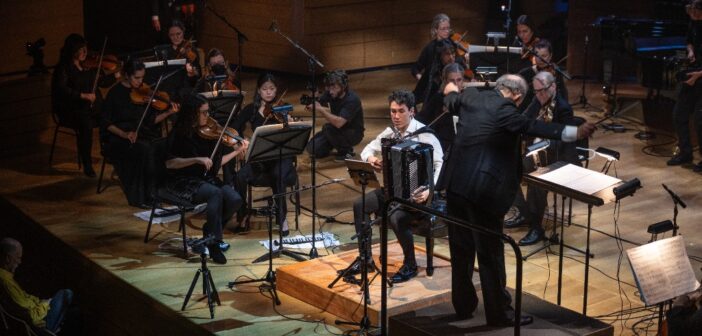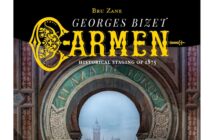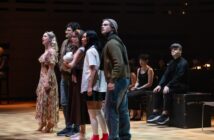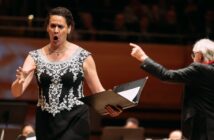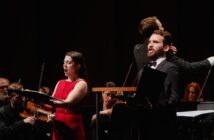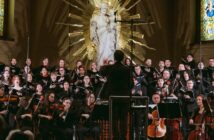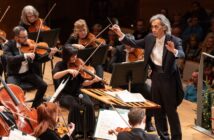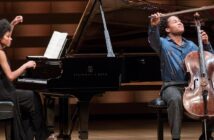Esprit Orchestra, conducted by Alex Pauk, presented three works at Toronto’s Koerner Hall on Nov. 24th. The first was Gabriella Smith’s f(x)=sin^2x-i/x. This follows the shape of the function dynamically for x=0 to x=2; so there’s a smallish crescendo, a quieter passage and then a big finish. The first part, using extended strings, winds and percussion, sounds rather like a train accelerating (to its doom?). The piece then goes much quieter and more melodic before the final build up with an almost Brahmsian quality in the brass leading to a very loud, cacophonic finish. Then silence!
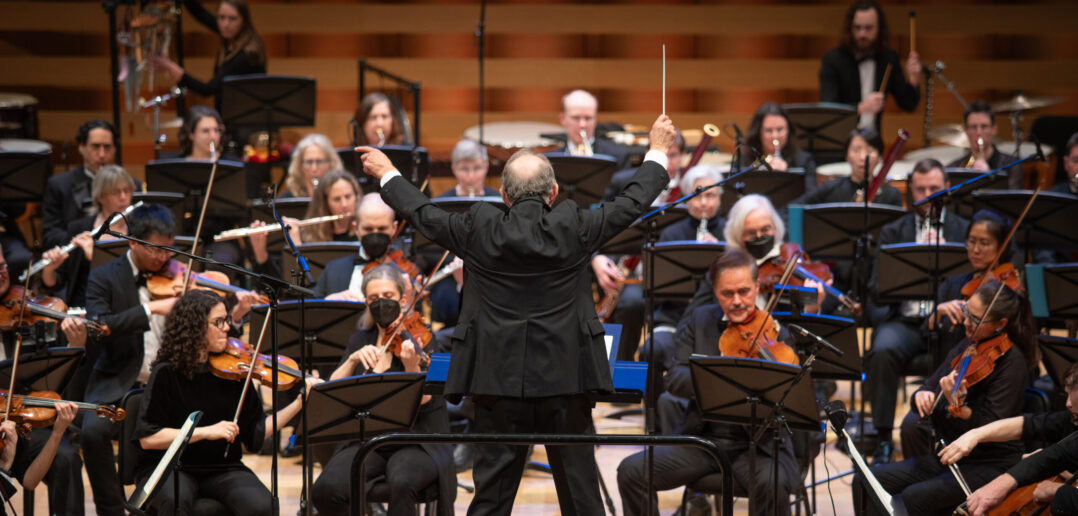
Esprit Orchestra conducted by Alex Pauk. Photo: Karen Reeves
Bent Sørensen’s It is a pain flowing down slowly on a white wall is a concerto for strings (sort of) and accordion, played here by Michael Bridge. I say “sort of” because some of the strings also play melodica and some of them sing! It’s quite a gentle piece, almost meditative, or even ritualistic, though it requires virtuosity from the soloist. There was a staging and lighting element with the orchestra processing from the stage at the end to almost dance-like rhythms as the light faded leaving Bridge alone in total darkness.
Bridge was then presented with the Canada Council for the Arts Virginia Parker Prize for outstanding young classical musician and as a pourboire we got a solo performance of Piazolla’s short tango Catastrophe.
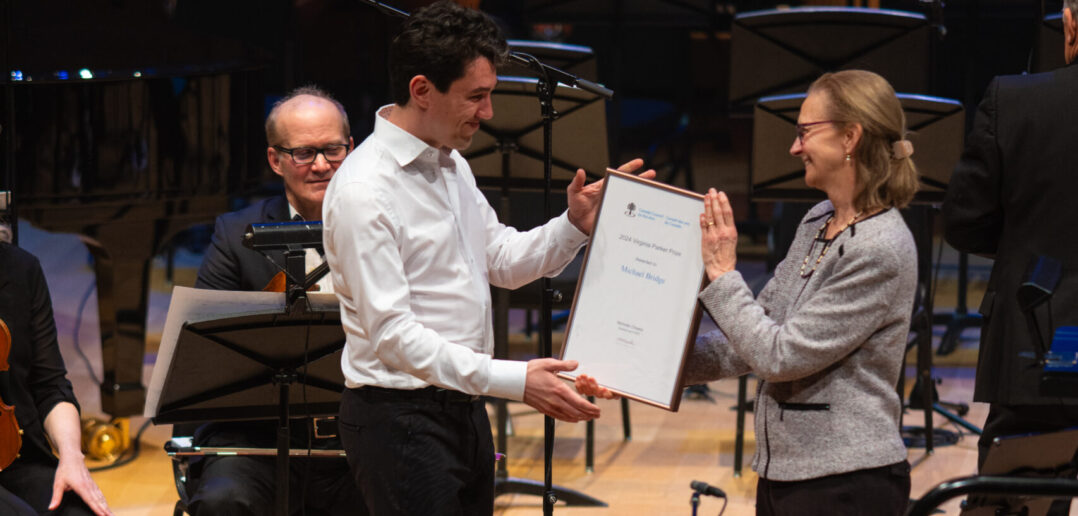
Michael Bridge presented with the Canada Council for the Arts Virginia Parker Prize. Photo: Karen Reeves
After the interval it was Maki Ishi’s Fū-Shi (“Shape of the Wind”). This 1989 piece for large orchestra was based on the tripartite principle of jo-ha-kyū in which a work progresses from a simple opening section through a faster, more complex development to a short, fast climax. I really didn’t detect that structure in the performance.
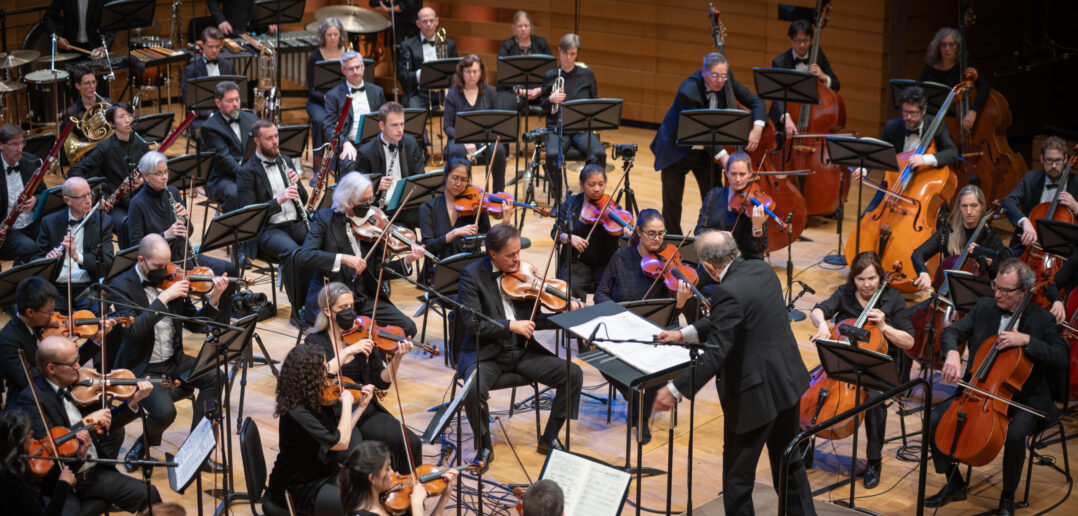
Esprit Orchestra conducted by Alex Pauk. Photo: Karen Reeves
Fū-Shi is scored for a very large orchestra and is rumbly, very dense and very loud from the start. It proceeds to get denser and louder with some extremely dramatic, almost overwhelming crescendi. The Japanese influence is very clear with sounds reminiscent of temple bells and Japanese percussive dance music but its overwhelming volume of sound seems very Western!
Esprit Orchestra’s season continues on Feb. 23 with Runner, a program of three concertos from different cultures.

